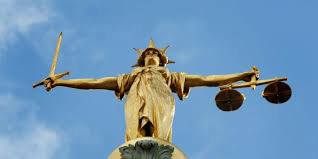
Several months ago, the Labour Government, following damage to Air Force planes by members of a group whose stated aim is to support the people of Palestine, formally registered the organisation as a “terrorist organisation”. The main consequence is that it is now forbidden to support that banned “terrorist organisation”. The Government were probably right to do so, but they have not given persuasive evidence to justify the banning. Most people can distinguish the offence (in this case very serious) of Criminal Damage – which if proven should be punished – from “Terrorist Activity”.
However, in the absence of any persuasive evidence for the ban the only people who are being terrified seem to be the members of the Labour Cabinet.
Supporters of the organisation have continued their public protests against what they see as unduly heavy military activity against Palestinian people in Gaza but in such a way that it could be said that they were “recklessly” giving support to the banned organisation.
A series of peaceful and silent demonstrations have taken place and approximately 2,000 mainly young and elderly middle class citizens have been arrested and charged under the Terrorism Act.
It can be said that this is bringing the law into disrepute, but it involves a lot of police who are now very unhappy about what they are being required to do.
The Labour Government’s response is not to defend its decisions but without further explanation to use a Statutory Instrument (so no debate in Parliament) to give the police powers to prohibit peaceful public protest at their discretion and/or to direct the time and place of police choosing.
And now there is clamour from all sides for the power of the state over its citizens to be free from limitation by the code of Human Rights.
Public Protest for political purposes is “strongly protected” under Art 10(1) of the European Convention of Human Rights in all 46 signatory nations inc UK.
A military dictatorship withdrew Greece for 7 yrs but it’s now back. Russia and Belarus were expelled in 2022.
It may surprise people to know that the European Convention of Human Rights arose from the similar UN Convention promoted and secured in the 1940s by Eleanor Roosevelt.
It was particularly supported by Winston Churchill (who proposed setting up the Council of Europe as early as 1943) and the European Convention was drawn up mainly by UK lawyers principally Sir David Maxwell-Fyfe.
The Council of Europe finally came into existence in 1949 and the Convention of Human Rights was signed on behalf of 48 states under the Treaty of London the same year.
For the UK to turn its back on the concept of Human Rights in favour of narrower and politically qualified national or ethnonational rights would put UK in an almost unique situation. Even the Russian Federation and Belarus – though expelled for invading Ukraine – remain in theory still committed to the Human Rights concept.
The Labour Government appears to be willing to join Reform UK and the Conservative Party in renouncing liberal democracy, making the state the final arbiter of our rights, to be granted or not as the state decides and against whom there would be no possibility of appeal to any external body. It would be putting the clock back 75 years.